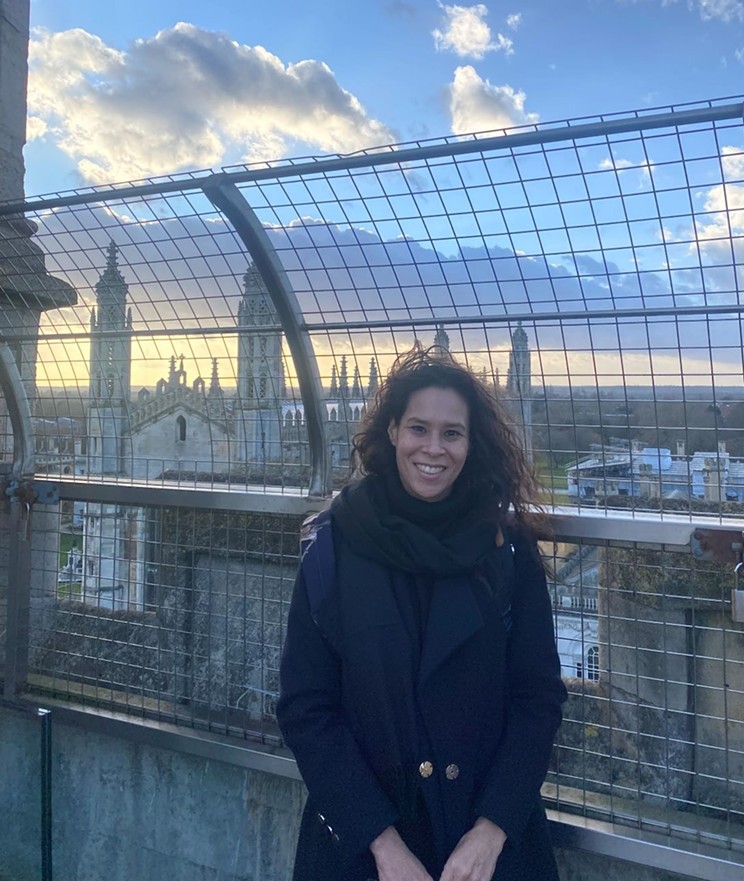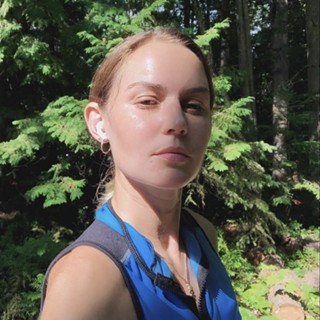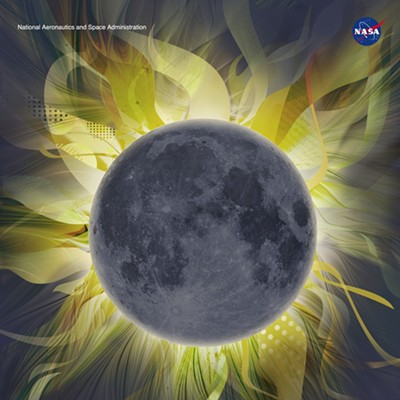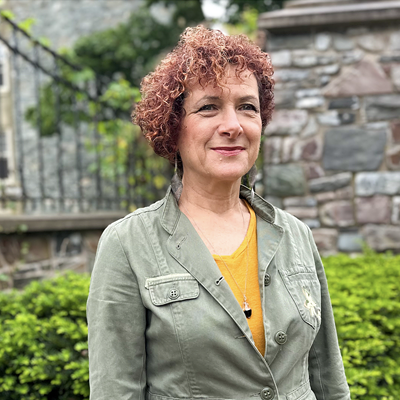El Jones is: a spoken word poet, radio host, writer, journalist, community activist, assistant professor at Mount Saint Vincent University and a current research fellow at the University of Cambridge in the UK. Along with 160-plus full-time faculty, librarians and lab technicians at MSVU—Jones is also on strike.
“No one wants to go on strike,” says Jones, “but part of the bargaining power is that we strike when it’s inevitable.”
On Feb. 14, university administrators rejected the union’s counter-proposal and had settled just four articles under discussion—“none of which are substantive to the major issues for the union and its membership,” according to the MSVU Faculty Association.
Like other union members, Jones has to perform daily strike duties to receive union strike pay. She’s doing these online while out of the country. One of the most controversial strike protocols MSVU announced is that faculty on sick leave won’t be exempt from strike duties, either. Rather, faculty on sick-leave and sabbatical must apply to the administration for an exemption to be granted. As of the start of the strike, MSVU administration say they have received very few requests for exemptions.
Requiring faculty on sick-leave to apply for an exemption, rather than be granted one upfront is "worrisome for what it says about our treatment of faculty with disabilities,” says Jones. Given that equity, diversity, inclusion and accessibility—EDIA—is central to this round of MSVUFA bargaining, for administration not to then provide exemptions to people on sick leave “says a lot about how illness and disability is treated,” says Jones.
As for her own unique strike situation, Jones says “in some ways, it really exemplifies the issues at the center of the strike.” EDIA language is being negotiated and attached to finances and policy on how so-called diverse faculty are evaluated and promoted, says Jones.
For her, coming to the University of Cambridge as a research fellow, beyond the benefits of working with experts in animal studies from across the world and access to the centre and adjacent Cambridge Animal Law curricula, is that it accentuates the fact that “for Black faculty across all university institutions, there's often an assumption that we have less merit and we got where we are through affirmative action measures—there's always an idea that we have to prove our research and prove ourselves.”
To have Cambridge on the resume is attractive as a Black scholar working in political areas that Jones says are often not seen as real or equal scholarship.
“The very reason I'm here and why we're going on strike is linked to the ways Black faculty have to show that our work is valid,” says Jones, “and that what we're doing is real and worth recognizing.”
Jones says it’s been tough to navigate striking online while being in England, thousands of kilometres away from her union, but that her situation “shows the many issues that so-called diverse faculty face in our working lives.”
Jones feels that striking, while tough on faculty and students, is important because of the privileged position faculty holds at the university. “It’s for that reason that full-time faculty need to take a stand and be strong in our bargaining—we hold a relative amount of power—not as much as the administration—but obviously relative to precarious staff, or non-unionized staff.” Jones says if the MSVUFA doesn’t take a stand on issues of importance, like EDIA, then it will be impossible for those with less power to do so—including students.
“It's obviously difficult to balance in the middle of writing a research paper due by the end of the fellowship,” says Jones, “but we recognize that those sacrifices are necessary.”
When the MSVUFA and the university’s Board of Governors do reach a new collective agreement, Jones will resume teaching an MSVU first—an animal studies course entitled “Animals: Sentience and Responsibility.” Jones’ course is cross-listed in religion, cultural studies and philosophy at the Mount.
“Yes, it’s about animals,” says Jones. “But it’s also about shifting core ideas of human supremacy, for example the centrality of human thinking, how we see ourselves in the world, how we conceive of even things like reason, knowledge and being that are intrinsically based on the idea that humans are different than animals.
“Animal studies crosses a lot of fields and talks about science and medicine; it talks about law; it talks about religion. When you start challenging the animal-human divide, it challenges foundations of our knowledge and ideas of the soul, of the mind, of morality…it leads us to really interesting places, yes, on animals, but also perhaps beyond that as well.”
The course begins with the idea that animals don’t have culture or history. Students learn about animal trials in the Medieval Period as an example of historical anti-animal sentiment and, therefore, human supremacy. Jones moves students through discussions of the origins of animal rights, animal agency and loss of agency, the history of urban animals in Canada, the colonization of animals, the RCMP slaughtering Inuit sled dogs in the 1960s and ‘70s, animals in labs, the 1870s vivisection debate in Oxford, industrial farming, Black veganism—food systems and political responses to them—and more.
They read Jason Hribal’s book Fear of the Animal Planet: The Hidden History of Animal Resistance, which Jones says is “probably my favourite animal book about the history of animal resistance” like animal escapes, and animal attacks or freakouts as signs of resistance to their freedom being taken from them.
“Billy-Ray Belcourt has a beautiful and important essay on decolonizing animals,” called Animal Bodies, Colonial Subjects: (Re)Locating Animality in Decolonial Thought, which thinks about animals from Indigenous viewpoints. This is the next course discussion once classes resume.
“We covered ecofeminism right before the strike,” says Jones. Students read an essay on how the mid-1700s classification of certain animals as “Mammalia” emerged in debates around gender at the time, “Mammals” also being the name for female breasts. “At the time there was an entrenchment of traditional values around women as mothers [so] the mammal classification actually takes part in that political debate,” says Jones.
Jones’ class had a 30-student cap. It’s oversubscribed at 45. Some are science students, some are arts students—the range is wide. “There’s been great engagement and fruitful ideas from students,” says Jones.
Also embedded into the course reading is a discussion of police dogs related to Jones’ current research fellowship at the Cambridge Centre for Animal Rights Law.
In 2013, an Edmonton police dog named Quanto was killed. In 2015, Quanto’s Law, or the Justice for Animals in Service Act, passed in Canada. The law means people who knowingly, intentionally harm or injure a police dog will get enhanced sentencing as a result. Jones is working at the Centre for Animal Rights Law to review case law surrounding this, as well as reviewing the phenomenon of police dog obituaries. Jones is leading the research of implementation of Quanto’s Law—the first case of its use led to a man receiving 400 days of solitary confinement—and police-dog memorials, because there’s not much currently out there.
“I haven't been able to get data on race and police dog bites in Canada,” says Jones. “I've requested it—I haven't been able to get it.” There’s research on that in the US, though, and some from independent researcher Scot Wortley’s Use of Force by the Toronto Police Report in 2020. Wortley's report collected data that shows Ontario police dogs attack Black people six times more often than white people.
“In Canada we don't keep that data, but from looking at lawsuits and investigative reports it's clear that Indigenous people are overwhelmingly and disproportionately bitten by police dogs,” Jones says. Although keeping data on these attacks based on race is something of a fight in itself. “There’s a huge connection between racialized police violence and who has police dogs set upon them; police dogs are very much used in this regime of racial terror, which goes back to colonization.”
Jones suggests that these dogs “gain adjacency to humans when we call them officers and get admittance to the human world unlike, say, an agricultural animal or a lab animal.” In memorials when they are killed on the job, police dogs are talked about in human, moral terms like “courageous, loyal, sacrificial, selfless or fallen warriors.”
Police dogs are “elevated to the human because they commit state violence,” says Jones, “because they're engaged in biting people, which are frequently racialized, Indigenous and Black people.” Jones says that in Toronto, for example, 8% of the population is Black, but nearly 60% of police-dog bites are of Black people.
“The same thing we critique about the police, as part of racial profiling as part of police brutality,” says Jones, “becomes what elevates these dogs to the point of deserving officer obituaries when they’re injured or killed on duty. It's a kind of conditional and performative admittance to the human that only takes place because they're being used in this racialized state violence.”
As a research fellow with Cambridge and The Brooks Institute for Animal Rights, Law and Policy, Jones will publish her research in a paper by Mar. 15. On Tuesday Feb. 20 at 1pm AST, Jones gave her presentation over Zoom, called “Dog-agenda: How the state uses dogs to manufacture consent for violence.” Watch her talk here.













